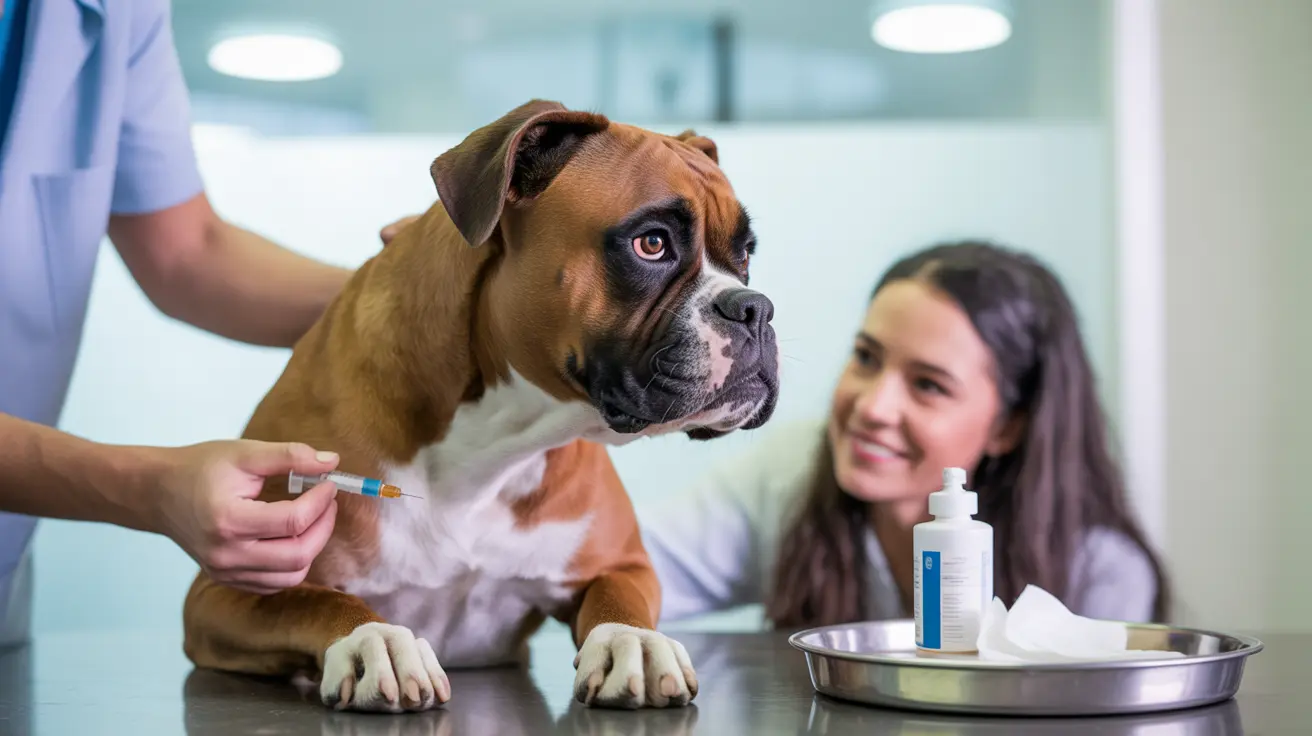Understanding Accidental Double Rabies Vaccination
When a dog receives two rabies shots within a single year, pet owners naturally become concerned about potential health risks. While this situation isn't ideal from a scheduling perspective, veterinary experts generally agree that an additional rabies vaccination poses minimal risk to healthy dogs.
This comprehensive guide will explore the implications of double rabies vaccination, potential side effects, and what pet owners should know about proper vaccination schedules and protocols.
Safety and Health Implications
The good news is that receiving two rabies vaccines in one year typically doesn't cause significant health problems. Rabies vaccines are inactivated (killed) vaccines, making them inherently safer even when administered more frequently than necessary.
Common minor reactions may include:
- Temporary soreness at the injection site
- Mild lethargy lasting 24-48 hours
- Slight fever
- Minor swelling around the vaccination area
Impact on Immunity and Protection
Multiple rabies vaccinations within a year don't provide additional immunity benefits. Once a dog develops immunity from the initial vaccination series, extra doses don't enhance protection levels. The immune system reaches an optimal response plateau that additional shots cannot meaningfully increase.
This principle explains why veterinarians stick to established vaccination schedules - they're designed to maintain protection while avoiding unnecessary doses.
Legal and Documentation Considerations
Even if your dog receives an extra rabies shot, it doesn't affect the official vaccination schedule. Legal requirements and documentation still follow the original timeline based on your local regulations and the type of vaccine used (1-year vs. 3-year).
Important documentation points:
- Keep records of all vaccinations
- Follow the original schedule for future boosters
- Maintain compliance with local licensing requirements
- Ensure travel documentation reflects official vaccination dates
When to Contact Your Veterinarian
While double vaccination is generally safe, contact your veterinarian immediately if you notice:
- Severe lethargy lasting more than 48 hours
- Loss of appetite
- Facial swelling
- Difficulty breathing
- Persistent vomiting or diarrhea
- Signs of an allergic reaction
Prevention and Best Practices
To avoid accidental double vaccination:
- Maintain detailed vaccination records
- Schedule appointments with the same veterinary clinic when possible
- Keep digital copies of vaccination certificates
- Set calendar reminders for due dates
- Communicate clearly with all caregivers about your dog's vaccination history
Frequently Asked Questions
What are the risks if my dog accidentally gets two rabies shots in one year?
The risks are generally minimal for healthy dogs. Most dogs experience no significant adverse effects beyond mild, temporary discomfort at the injection site. Severe reactions are rare but should be monitored for 24-48 hours after vaccination.
Does giving a dog two rabies vaccines in one year improve their immunity?
No, additional rabies vaccines within a year don't increase immunity levels. Once proper immunity is established through the initial vaccination series, extra doses provide no additional protective benefits.
What side effects should I watch for after my dog receives two rabies vaccinations in a short time?
Monitor for typical vaccination reactions like injection site soreness, mild lethargy, or slight fever. Seek immediate veterinary care if you notice severe reactions like facial swelling, difficulty breathing, or persistent vomiting.
How often should dogs receive rabies boosters according to typical vaccination schedules?
Initial puppy vaccination occurs at 12-16 weeks, followed by a booster at one year. After that, boosters are given every 1-3 years, depending on the vaccine type and local regulations.
Will two rabies shots in one year affect my dog's vaccination records or legal compliance?
No, extra vaccinations don't affect legal compliance or future scheduling. Continue following the original vaccination schedule based on your local requirements and the type of vaccine used.
Conclusion
While receiving two rabies shots in one year isn't ideal, it rarely causes significant health issues in healthy dogs. The key is to maintain accurate records, follow proper vaccination schedules moving forward, and stay in communication with your veterinarian about any concerns.
Remember that proper vaccination timing is crucial for both legal compliance and optimal protection against rabies. When in doubt, always consult with your veterinary professional for personalized guidance based on your dog's specific health history and local requirements.






